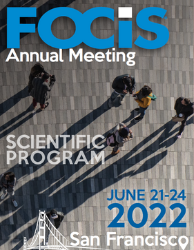Back
Immuno-oncology
Immune Remodelling in Advanced Adenocarcinoma by a CD40L-MUC1 Vaccine
Wednesday, June 22, 2022
3:15 PM – 3:30 PM PT
Location: Salons 5/6
Tira Tan; Peter Wang; Han Chong Toh; Salvatore Albani
Abstract Text: Understanding how immunotherapy effects the global immunome is a significant unmet need. We carried out a first-in-man Phase 1 study of Ad-sig-hMUC1/ecdCD40L (NCT02140996), an adenoviral-vector vaccine encoding the tumour-associated antigen MUC1 linked to CD40 ligand. The intervention demonstrated safety and tolerability in a cohort of 21 patients with advanced adenocarcinomas. High-dimensional mass cytometry revealed extensive dysfunction of the systemic immune system in cancer in 39 of 100 immune cell clusters identified compared to age and sex-matched healthy controls. Of the cell types that were deranged in cancer versus healthy, vaccination increased the frequency of cytotoxic GZMB+ IFNγ+ TNFα+ CD8 T cells as well as CD38+ CD14+ monocytes. Immunisation also reshaped the global immune network in cancer and partially restored the complexity of connections between nodes. By stratifying patients according to clinical outcome, we found that circulating GZMB+ CD8 T cells and B cells were increased in patients with stable disease after vaccination. Importantly, key differences were found in the baseline immunomes of patients with stable disease compared to progressive disease, with higher circulating CD45RA+ CD4 T cells associated with better clinical outcomes. Overall, our results suggest a broad, partially "restorative" effect of vaccination with Ad-sig-hMUC1/ecdCD40L. Our data highlights the importance of a functional immune system for response to immunotherapy, and the utility of high-dimensional analyses in understanding and predicting effective cancer therapies.

